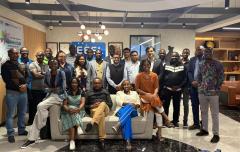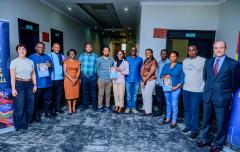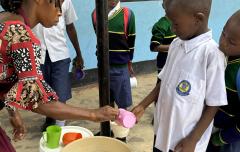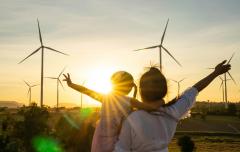Sweden showcases innovations to catalyze action on the SDGs
If you’re looking for a roadmap on innovations to advance sustainable energy in vulnerable parts of the world, a good place to start is a new report from the Swedish government outlining its efforts on sustainable finance, gender equality and other SDG-related activity.
The document, published in April, is full of examples showcasing new financing models, budgeting reforms and on-the-ground projects aimed at accelerating progress on the 2030 Sustainable Development Goals. By shining a light on these efforts, the report authors hope to stimulate faster, broader action on the SDGs.
“To finance the 2030 Agenda, the world must respond to a dual challenge: mobilizing societies’ resources for sustainability and doing this in a manner that leaves no one behind,” the report states. “Sweden believes that sharing examples within and between countries and organizations can be a good start, inspiring similar context-specific activities and helping to avoid pitfalls.”
The report specifically highlights how Sweden’s strategies dovetail closely with many of Sustainable Energy for All’s (SEforALL) priorities for advancing SDG7 energy gains– among those, a major focus on gender equality and women’s empowerment. The Swedish government is using gender-responsive budgeting to ensure that gender perspectives are applied in budget decisions and policy proposals; SEforALL has launched a People-Centered Accelerator, a voluntary partnership initiative aimed at promoting social inclusion, gender equality and women’s empowerment in the energy sector.
Among other highlights in the Swedish report, Implementing the Addis Ababa Action Agenda to achieve the 2030 Agenda for Sustainable Development – a selection of innovative examples:
• Linking business practices with the SDGs: The Swedish government has emphasized the importance of considering the 17 SDGs in business decision-making. An example of this is the steel industry aligning its objectives with the SDG13 climate change goal. The linkage has led to a shift in producing smart steel, which is stronger, lighter and requires less energy to produce. A pilot project is also underway to eliminate CO2 emissions by replacing coking coal with hydrogen in the iron-making process.
• Loan-portfolio guarantees for sustainable infrastructure: The amounts of institutional investor capital going to sustainable energy services and other key infrastructure is not nearly at levels that are needed. The Swedish government is helping close this gap by issuing $57 million of loan portfolio guarantees that will enable $1 billion of private investment for sustainable infrastructure in developing countries. The guarantee, through the Swedish International Development Cooperation Agency (SIDA), is expected to cover 20-25 projects, many of them renewable energy projects in poor countries with significant energy access gaps.
• Advancing sustainable energy through SDG7: Sweden has supported SEforALL’s work since 2012, recognizing its important role in providing high-level political guidance and coordination on global SDG7 efforts. Key areas where Sweden and SEforALL are closely aligned: compiling key gender disaggregated data, producing research and reports on finance flows for energy access and highlighting the economic dividends of achieving universal and sustainable energy access early.
Photo credit: Lar Bolands | Voices of a Brighter Future Journalism Competition



